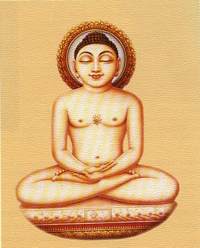
JVB London - Souvenir 2007
on
Ahimsa
Non-violence
Consumerism
The Economics Of Non-Violence
Right from the dawn of history, human society has been in search of economics of nonviolence. From Manu to Karl Marx, philosophers have deliberated upon some form of economic system, particularly the non-violent kind. In Arthashastra, Kautilya stresses on non-violent economics through development of cottage industries and being self-sufficient. Gandhiji also emphasized on development of cottage industries in villages so that whole India would be self-sufficient.
Consumerism has touched almost every facet of society. Urbanization, modes of transportation, communication, field of medicine, fashion products and cosmetics are all responsible for increasing the sphere of consumerism.
The industrial revolution changed the world economics. In the war between man and machine, the machine emerged victorious. Machines produce more materials than the required consumption, which create a hunt for markets to sell the surplus. Though open competition produced a variety of products, it also gave birth to the concept of "Jivo Jeevasya Bhojanam" - just as big fish eat the smaller ones, the big industries swallow the smaller ones. It started exploitation of the labour class, thus creating classes of haves and have-nots, giving rise to violence. People having much wealth did violence to fulfil their unlimited desires. Those who did not have money started participating in violent activities to satisfy their primary needs. Hence consumerism should be controlled to control violence.
Though it is difficult to vanquish consumerism, yet efforts can be made to minimise it. One should adopt voluntary simplicity in their lifestyles. This will not only save natural resources but also keep resources safe for future generations. Disarmament should also be encouraged.
The Jain economics of non-violence stands against exploitation; unequal distribution of wealth; over-exploitation of natural resources and the fast growing rush for industrialization. As per Jain economics, a person should limit his earnings to his requirements, control his desires and try to lead a simple and humble life. The core of Jainism is non-violence, simplicity, peaceful and frugal living and control over human desires.
Acharya Mahaprajna has a clear vision that Economics is the discipline of material prosperity and the science of peace rests on voluntary limitation of wealth. A basic requirement of the present times is that satisfaction of economic wants and peace. One-track approach will not solve the world's problems. It could be achieved though, with the code of conduct of Anuvrat (small vows), the training of Ahimsa (non-violence), Anekanta (non-absolutism), Aparigraha (non-possessiveness) and practice of Preksba meditation.
 Samani Mudit Pragya
Samani Mudit Pragya